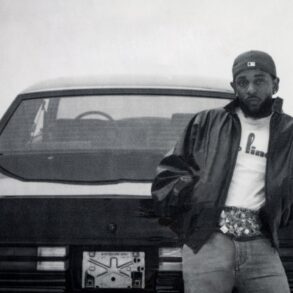
By all accounts, the second edition of Future Proof was a complete success. Articles across industry publications and consumer-facing media have praised Advisor Circle and Ritholtz Wealth Management for creating a unique and refreshing event that appeals to a younger, more diverse generation of financial advisors. I wrote something similar after the event’s debut in 2022.
Yet underneath the beach setting and relaxed dress code, Future Proof is still a work event for most attendees. Advisors are representing their firms; sponsors like Vanguard, BlackRock and Morningstar brought in teams of employees; and sales representatives from technology vendors and asset managers are working to get products in front of new customers.
For some, the performance of Method Man and Redman, two renowned hip-hop artists, at Future Proof’s closing party crossed a line of what’s acceptable and appropriate for a work event. During the event as well as in the hours, days and weeks after, I have heard from numerous attendees who felt aspects of the concert made people, especially women, feel uncomfortable and unwelcome.
“I would say that for a conference billing itself as the future and inclusive to all, this was the opposite and seemed tone-deaf,” said one person who attended the concert, who, like most others I spoke to for this piece, requested anonymity to share opinions freely. “I love hip-hop and if I personally went to a concert, this wouldn’t bother me. But this was a business event even if called a festival.”
They have a point, and it’s one of those thorny modern issues that is in no way unique to Future Proof or financial services. For example, a warehouse in Nevada is currently facing a sexual discrimination lawsuit for playing graphic music over its speakers.
As much as Future Proof deserves its flowers for pushing advisor meetings past stale conference rooms with stodgy performance from old white guys, there should also be an honest conversation about where the lines of appropriate behavior should be drawn and who is responsible for setting them.
Let’s get one thing clear: I’m a huge fan of Method Man and Redman. I’ve loved hip-hop music since the fourth grade, when an older cousin played me Blackstreet’s “No Diggity,” and I first heard Method Man just a few years later. I listened to Wu-Tang Clan (the hip-hop collective that Method Man was a founding member of and Redman frequently collaborated with) on repeat in college. I’ve heard all of Method Man and Redman’s albums (their joint album, “Blackout!” is fantastic), seen their movie “How High” countless times, and attended multiple concerts to see Method Man both as a solo act and with the Wu-Tang Clan. His song “Stimulation,” off his debut solo album “Tical,” was even my ringtone back in the flip-phone days.
This is all to say that I’m not one to clutch at my pearls in response to the lyrics of rap music. Nor am I interested in litigating the long and complex cultural discussion around hip-hop in a column for InvestmentNews. I was standing in the front row at Future Proof and, overall, had a great time. Method Man threw his sweat towel at me and I’m weird to enough to feel honored by it.
However, even I was taken aback when, between two songs early in the performance, the two iconic rappers led the audience in a chant of “let’s get retarded.” I’m paraphrasing because I wasn’t actively taking notes during the show, but there was no mistaking the use of the word that’s commonly used as a slur for people with mental disabilities — a word that hasn’t been fashionable in pop music since The Black Eyed Peas changed it to “It Started” in 2004 to score a radio-friendly hit song.
Later, Redman led a call-and-response with the audience, asking “the ladies who have clean p******,” using a common slang for female anatomy, to make some noise. The line “b**** suck my d***” was repeated multiple times.
This left a sour note on an otherwise excellent conference, said Danika Waddell, founder of Xena Financial Planning. As a hip-hop fan (who even has tickets to see an upcoming Wu-Tang Clan concert), she knew a Method Man and Redman show would likely have elements she didn’t agree with and was prepared for it. However, Waddell felt the performers went too far and leaned to heavily to misogyny for an event where attendees were encouraged to bring their families.
“I’m really glad I did not bring my teenage daughter to that. I thought it was horrible,” she said.
Beyond the words, Waddell noted that the call-and-response was totally different for men, who were simply asked if they were fans of hip-hop without any reference to genitalia.
“It was very targeted; it was very demeaning to women,” she said. “It let women know that its about our bodies and our sexuality. I don’t feel men’s bodies or men’s sexualities were touched on, at all.”
“There was so much I loved about [Future Proof] — I was raving about it — but that part really disappointed me,” she added.
The performers were chosen after Big Boi (half of rap duo OutKast) closed the show in 2022 and to match attendee preference. During registration, Advisor Circle asked all attendees to select their favorite genre of music, and “hip-hop” beat out “rock” as the most popular, Matt Middleton, CEO of Advisor Circle, said in an email.
“Live performances, especially by Grammy-winning artists of renowned stature, can be unpredictable,” Middleton said.
As a new event, Advisor Circle is seeking ways to improve the experience every year and is in the process of gathering opinions on all aspects of Future Proof, he added. “We will give all feedback the attention it deserves and highly value constructive criticism.”
In 2019, Fisher Investments founder and chairman Ken Fisher ignited a firestorm for comments made at the Tiburon CEO Summit that included references to genitalia, Jeffrey Epstein, tripping on acid and “picking up on a girl.” The outrage created a media cycle that lasted for weeks, generated several apologies and barred Fisher from future events for comments that were arguably less vulgar. If Fisher’s comments were sexist and beyond acceptable behavior for a conference, where does the industry fall on Method Man and Redman’s performance at Future Proof?
Perhaps tellingly, most people I reached out to for this article either declined to comment or ignored questions about the performance. Alex Chalekian, the CEO of Lake Avenue Financial who leaked Fisher’s 2019 comments on social media, did not respond to a request for comment. In fact, none of the men I reached out to wanted to comment, and every woman besides Waddell asked to remain anonymous to avoid backlash from the men in the industry.
“It’s hard to speak out against some of these guys, even if they are problematic finance bros, because they are also gatekeepers and can elevate people or hurt their careers,” said a Future Proof attendee who asked to remain anonymous.
The two events are, of course, quite different. Fisher is an industry executive speaking on a panel to other executives, while Method Man and Redman are rappers who have made R-rated gross-out humor a part of their art since the infamous “torture” intro to the song “Method Man” on Wu-Tang’s 1993 debut album. Their performance was an optional show that started after 9:00 p.m., and performing artists can and should enjoy creative freedom.
Everyone I spoke to was adamant that they still loved Future Proof and don’t blame the event organizers or anyone affiliated with the Ritholtz group. No one I spoke to is looking for any sort of punishment, nor do they want Future Proof to stop featuring rap artists with adult lyrics.
However, both instances still get at the issue of the objectification of women and sexuality in the context of an industry with a traditionally terrible record on these issues. There should be a conversation about what this says to women in the audience.
“I do think it sends a message,” Waddell said. “The people at the top creating this event have a responsibility for setting the tone, and is that the tone they want to set?”
This doesn’t mean artists have to completely censor themselves like Snoop Dogg and Dr. Dre did in the Super Bowl halftime show. After all, no one seemed to have any problem with Big Boi’s performance in 2022.
As someone who enjoys a wide range of music that a lot of people would find wildly inappropriate, I think of it more like how I wear headphones to keep it to myself while working in the office. Or how I skip over certain songs on my playlist when my mom is around. I love those songs and have no problem with the content personally, but respect that it might make others around me uncomfortable.
If Future Proof truly wants to be a radically new type of industry event that represents a more inclusive industry, I’m confident some commonsense guidelines can be put in place to continue attracting some of the coolest names in music while ensuring attendees feel welcomed and safe.
This post was originally published on this site be sure to check out more of their content.








